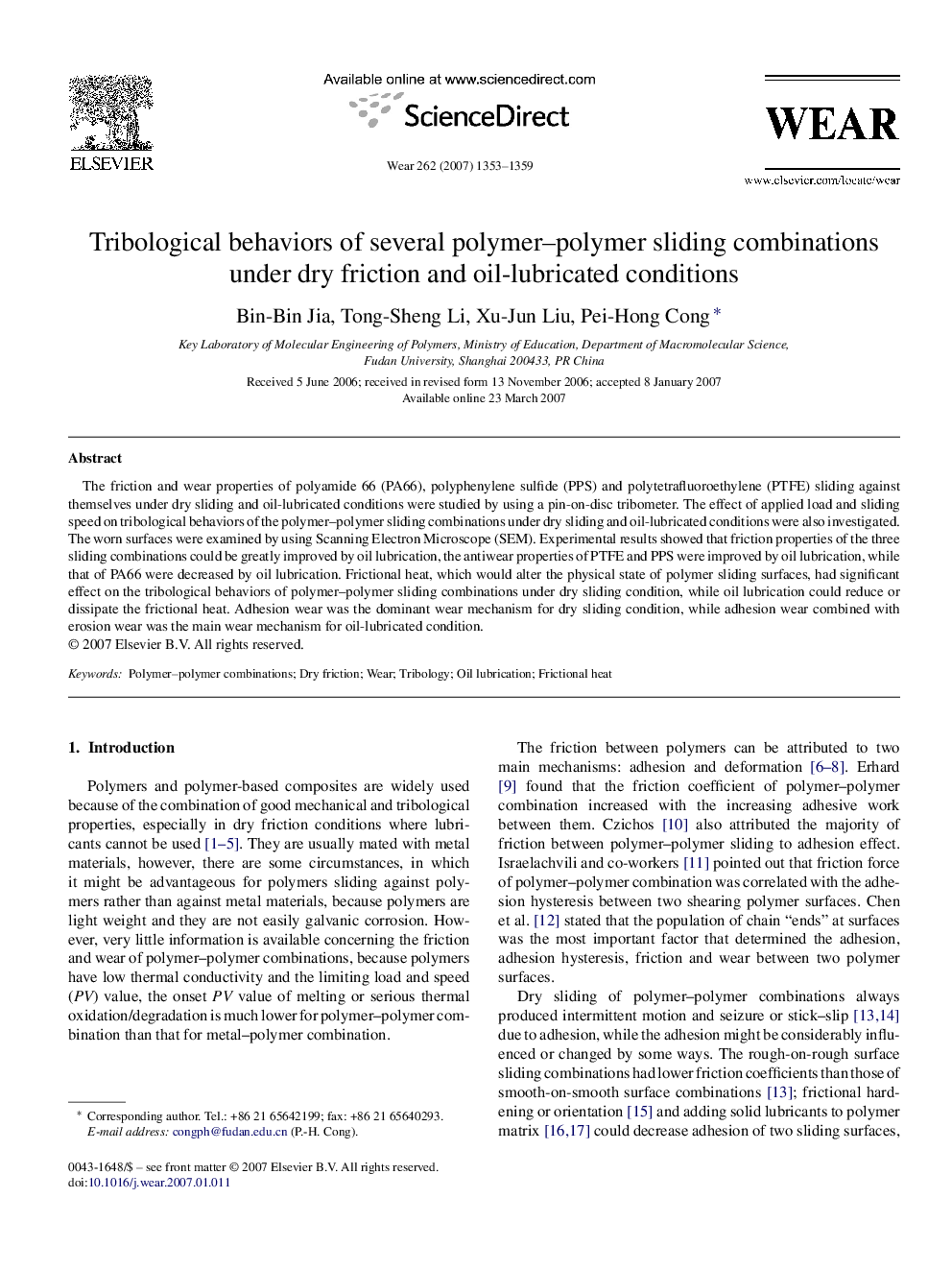| Article ID | Journal | Published Year | Pages | File Type |
|---|---|---|---|---|
| 619561 | Wear | 2007 | 7 Pages |
The friction and wear properties of polyamide 66 (PA66), polyphenylene sulfide (PPS) and polytetrafluoroethylene (PTFE) sliding against themselves under dry sliding and oil-lubricated conditions were studied by using a pin-on-disc tribometer. The effect of applied load and sliding speed on tribological behaviors of the polymer–polymer sliding combinations under dry sliding and oil-lubricated conditions were also investigated. The worn surfaces were examined by using Scanning Electron Microscope (SEM). Experimental results showed that friction properties of the three sliding combinations could be greatly improved by oil lubrication, the antiwear properties of PTFE and PPS were improved by oil lubrication, while that of PA66 were decreased by oil lubrication. Frictional heat, which would alter the physical state of polymer sliding surfaces, had significant effect on the tribological behaviors of polymer–polymer sliding combinations under dry sliding condition, while oil lubrication could reduce or dissipate the frictional heat. Adhesion wear was the dominant wear mechanism for dry sliding condition, while adhesion wear combined with erosion wear was the main wear mechanism for oil-lubricated condition.
